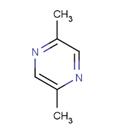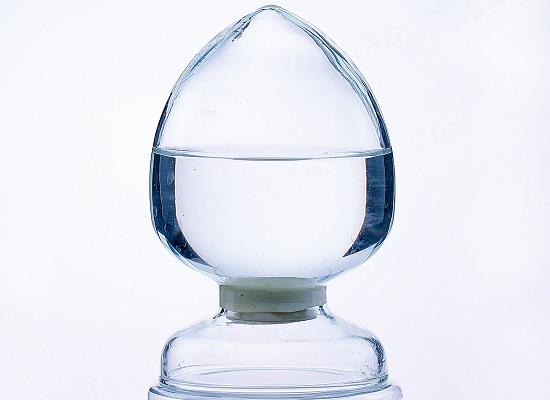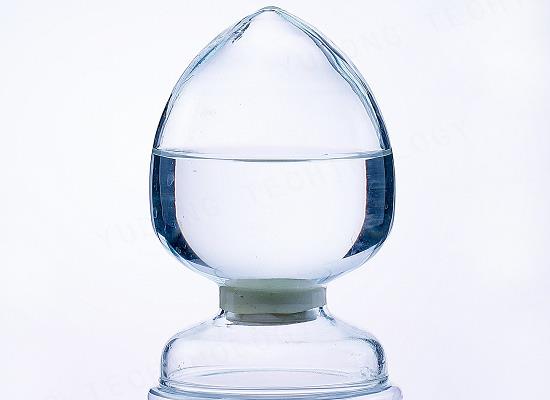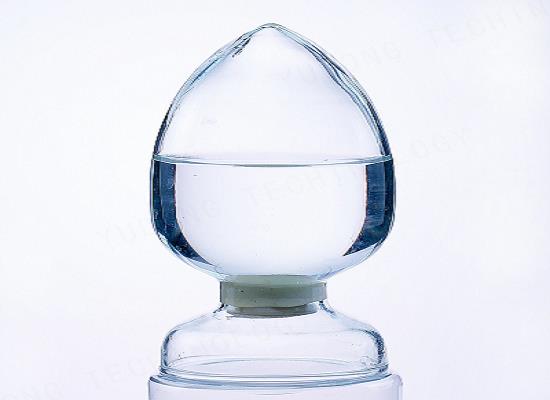What is 2,5-dimethyl pyrazine?

Fig 1. Chemical structure formula of DMP
2,5-Dimethyl pyrazine (DMP, C6H8N2, CAS registry No. 123-32-0) is a clear colorless to pale yellow liquid. Its melting point is 15 oC and boiling point is 155 oC. DMP is soluble in water and stable under normal temperatures and pressures.
DMP is one of alkyl pyrazine compounds which are a class of compounds that occur almost ubiquitously in nature and are utilized by bacteria, plants, vertebrate and invertebrate animals and by humans[1]. Pyrazines have been detected in heated foods such as beef products, toasted barley, cocoa, coffee, peanuts, popcorn, potato chips, rye crisp bread and roasted filberts as well as in fresh foods like tomatoes, peas, green bell peppers, asparagus, kohlrabi and dairy products. Even in beer and wine, pyrazines contribute to the aroma. Due to their low vapor pressure, the pyrazines evaporate easily. Many of these compounds have intensive smells and very low odor threshold values. Therefore, these compounds contribute to many aromas and flavors. For example, DMP has been associated with potato flavor with an odor threshold of 1 ppm in water[2]. DMP and tetra methyl pyrazine are the main pyrazines detected in many cocoa bean- or soybean-based fermented foods, where they are recognized as important contributors to their flavor. Therefore, DMP has been used as flavoring additives[3]. DMP also can be used for the synthesis of 5-methylpyrazine-2-carboxylic acid, which is an important pharmaceutical intermediate for the synthesis of hypoglycemic drug glipizide and antihyperlipidemic agent acipimox.

DMP can be formed with other pyrazines by heating of food in the Maillard reaction or Strecker degradation, in which amino acids react with sugars and pyrazines are formed[4]. The chemical synthesis of DMP has also been studied in great detail. For example, DMP can be produced from acrolein and ammonia in glycerine by heating in the presence of ammonium salt. However, the substrate acrolein is a highly toxic substance and the reaction process is prone to explosion. DMP can also be synthesized using 1-isopropanolamine as substrate by gas-solid reaction process[5]. However, due to the utilization of environmentally harmful organic solvents and poisonous reagents, and harsh reaction conditions, the chemical method for the synthesis of DMP can be replaced by biosynthetic method. For example, a strain Bacillus subtilis XZ1124 was construct for the high-yield production of DMP by microorganisms fermentation with L-threonine as substrate.
References
[1]Muller, R.; Rappert, S., Pyrazines: occurrence, formation and biodegradation. Applied microbiology and biotechnology 2010, 85 (5), 1315-1320.
[2]Buttery, R. G.; Seifert, R. M.; Guadagni, D. G.; Ling, L. C., Characterization of Volatile Pyrazine and Pyridine Components of Potato Chips. J Agr Food Chem 1971, 19 (5), 969.
[3]Adams, T. B.; Doull, J.; Feron, V. J.; Goodman, J. I.; Marnett, L. J.; Munro, I. C.; Newberne, P. M.; Portoghese, P. S.; Smith, R. L.; Waddell, W. J.; Wagner, B. M., The FEMA GRAS assessment of pyrazine derivatives used as flavor ingredients. Food Chem Toxicol 2002, 40 (4), 429-451.
[4]https://pubchem.ncbi.nlm.nih.gov/compound/5954
[5]https://www.ebi.ac.uk/chebi/searchId.do;jsessionid=5C1F309086E88FC2BAD3726917A674F0?chebiId=CHEBI:82434
You may like
Related articles And Qustion
See also
Lastest Price from 2,5-Dimethyl pyrazine manufacturers

US $5.00/kg2025-04-21
- CAS:
- 123-32-0
- Min. Order:
- 1kg
- Purity:
- 0.99
- Supply Ability:
- 10000

US $10.00/KG2025-04-21
- CAS:
- 123-32-0
- Min. Order:
- 1KG
- Purity:
- 99%
- Supply Ability:
- 100 mt





